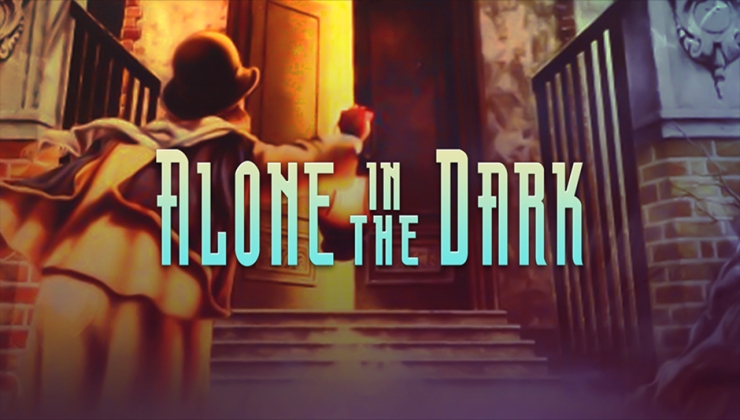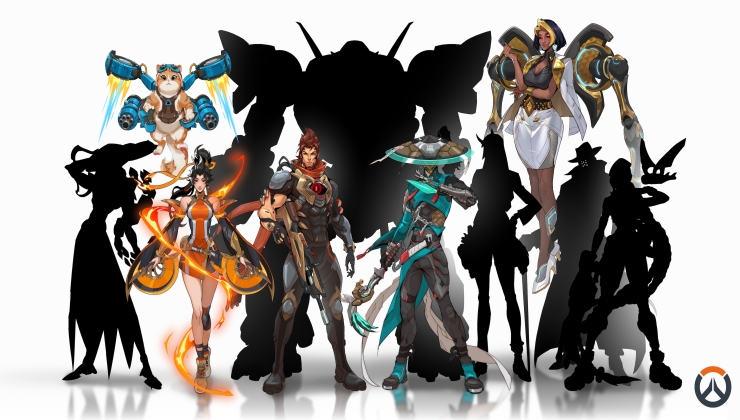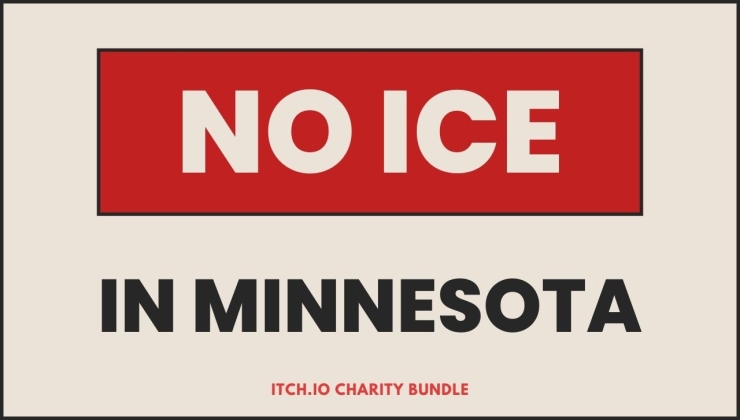Doing the rounds right now is a post from Valve's Steam support (thanks Ars), when a user asked about what would happen to their Steam account when they died and it's not great news for anyone hoping to pass on your Steam account.
This comes from a post on Resetera, where the user asked if a Steam account could be transferred via a will. The Steam support staff member replied to note very clearly Steam accounts are plain and simply "non-transferable".
It's not exactly something new, or surprising, given that Steam's Subscriber Agreement clearly notes "You may not reveal, share or otherwise allow others to use your password or Account except as otherwise specifically authorized by Valve.".
Still, nothing actually technically stops you just writing down your details for someone and leaving it in a safe space, it's not like Valve actually go and confirm your identity. You also have the newer Family Sharing system, so someone could quickly go in and share it to your personal account and get most of the games.
It's also another reminder that on Steam, you don't own any games on it at all. Once again, as per the Subscriber Agreement, "Content and Services are licensed, not sold" and your "license confers no title or ownership in the Content and Services".
This will be the same across nearly all web stores that offer digital products you "buy", they're not yours. Epic Games Store is exactly the same as per their EULA which notes "All rights granted to you under this Agreement are granted by express license only and not by sale". Ubisoft are exactly the same in their terms as well noting "we grant you a non-exclusive, non-transferable, non-sublicensed, non-commercial and personal license". Think GOG are any better? They're not, as per GOG's agreement "Your GOG account and GOG content are personal to you and cannot be shared with, sold, gifted or transferred to anyone else." and they make it clear multiple times you get a license again, not ownership of anything sold.
If you go through most other places, they all use similar language and we're not talking just game stores here but anywhere you digitally purchase movies, TV series and so on. You get the idea. You might be buying the item, but you have no ownernship at all.
Really, the only time this will change is when physical media properly dies off and people cause enough of a fuss that governments and legal bodies around the world put in new laws around digital ownership, which is not likely for a long time.
So, you probably should go and clear that backlog of games you've built up.
I still remember using no-cd cracks on my purchased games 25 years ago to avoid putting a CD-ROM into a player that would make as much noise as an airplane during take-off…
Last edited by Bogomips on 28 May 2024 at 12:53 pm UTC
Really, the only time this will change is when physical media properly dies off and people cause enough of a fuss that governments and legal bodies around the world put in new laws around digital ownership, which is not likely for a long time.I remember Valve was sued in France by UFC-Que Choisir several years ago on the grounds that digital purchases should be treated the same as physical purchases (aka customers should have ownership over their digital games, and could resell/transfer them just like with physical media), so I guess things could change depending on how the appeal goes (Valve lost the initial trial, for those unaware of the proceedings).
Last edited by williamjcm on 28 May 2024 at 9:26 am UTC
Of course, the question of ownership is still a big issue, one where my personal solution if it ever came to (cue the Microsoft acquiring Valve rumour) is to simply participate in questionable software actions to keep my Steam-downloaded games usable. It's what makes me sleep at night, knowing I can still have at it if the Steam store evaporates the next day (tears of multi billion corporation fans and irrelevant regional laws go here)
I've seen the criticism about GoG before, but I never got it. They're selling you the game, and once you download it, it's yours, truly. I don't care what their licensing agreement says, if one doesn't like their service or launcher, they can just acquire the game through alternative sources after making the transaction on their website, and there'd be 0 difference in product quality, since at the end of the day, the games have no DRM. If we want to be unnecessarily specific and explicit: yes, digital is never going to be as good as physical, but with GoG I think we're almost there, it depends on how much you really care about EULAs and whatever other crap designed specifically to fuck you over and protect their bottom line.
Call me old school, but my relationship between myself and game retailers/storefronts will forever be this: a single transactional contract, they get my money, and I get the game. If I get blasted by some stupid enshittification bullshit down the line locking me out of a game I bought, or artificially making the experience worse, too bad for them, I'll sail the damn seas.
Last edited by Pyrate on 28 May 2024 at 10:00 am UTC
when physical media properly dies off and people cause enough of a fuss that governments and legal bodies around the world put in new laws around digital ownershipI do not expect the death of physical media to have much of an effect on legislation. Technically, physical media also do not grant ownership of the data stored on them. If you bought software on CDs, you owned the CDs, but you still needed a license to legally use the software.
I do see one big difference though, but I doubt it will be enough to cause legislation changes. In the past, when people were mostly offline and relied on physical media for software distribution, it was basically impossible to enforce a non-transferable license.
If you go through most other places, they all use similar language and we're not talking just game stores here but anywhere you digitally purchase movies, TV series and so on. You get the idea. You might be buying the item, but you have no ownernship at all.It's not even just digital, also physical. You can't buy a Blu-ray and open a cinema and make money by showing the movie to a wider audience and you're also not allowed to build a movie rental store like Blockbuster or Netflix (in its original form).
You need a special license for that.
Does somebody know if and how selling an ESO account would work out? I suddenly have one and I have no use for it...
Quoting: BogomipsI am pretty sure people are still wondering why piracy will never die as they continue to treat paying customers like criminals (piracy reminders everywhere, DRM, locked platforms, mandatory online connections, etc.)Hm, sign of the times ... i guess in the end when newell retires it'l end up in the hands of microsoft anyway, just like blizzard versus Kotick, nice retirement bonus. For several reasons i never use cloud services b/c "they own" your data on it and are free to deny you access and frankly , its cheaper to buy rackspace for use at home than having a monthly sub. Afaik EPIC has smallprint that says all your clicks and conduct during play can and will be used to profile you (that might have changed but i doubt it) and it would surprise me valve has that by now.
I still remember using no-cd cracks on my purchased games 25 years ago to avoid putting a CD-ROM into a player that would make as much noise an airplane during take-off…
I keep about all games (since i only have linux anymore so i only buy what runs on linux anymore offline ready-downloaded and as patched as they get and as you say : i still keep all my hard dvds i gathered on a self-tinkered nas made from old parts with mechanical drives b/c i dont wanna scratch them.
Add to all this the mad prices of €100 or close for a single game, its plenty to be very picky . Newel might have been taken over by the triffids from all i see lately. How many original bipeds are still around since 2019 ...
They can't login to the account but most of your library is still kind of passed on ?
Quoting: shnullAdd to all this the mad prices of €100 or close for a single game, its plenty to be very picky . Newel might have been taken over by the triffids from all i see lately. How many original bipeds are still around since 2019 ...If you add season pass and similar DLCs, many games are in fact way more expensive than €100 (e.g. Tekken 8). But well, that's other different discussion.
Quoting: NyxWouldn't you just use steam family sharing and pass it down that way.This is mentioned in the article. But, that would require someone to share before they die. And whoever wants the account passed on may not have it shared, that doesn't really solve the issue at hand, and not all games are available via family sharing.
They can't login to the account but most of your library is still kind of passed on ?
My take on this: I only want accessibility granted. The way I use to do this is making functional stand alone backups of what I buy. I do this by buying DRM free games and store the latest installer somewhere. If a game has DRM then I put a cracked exe inside it. And if a game has DENUVO I DO NOT BUY it ever. DENUVO is the only DRM not easely circunvented meaning the game is trully not mine.
Well, this is on PC. What about consoles? I jailbreak all of them at their end of life (I consider that the year a new console is released). In some cases I buy and jailbreak it instantly like Nintendo consoles because of agressive anti consumer practices.
By now there are some companies that there is a moral obligation of not paying them to play their games because agressive anti consumer practices:
- Nintendo
- EA
- Ubisoft (this one is getting worser at a day basis)
It's like they say: If buying is not owning, piracy is not a crime. Because y'know, taking your money to give you nothing is just theft.
I am currently using the family beta, which is a huge thing for me, as i have four kids. I wonder if it might be possible to inherit games to the family library someday.
On the other hand, i remember when i was on the Amiga, i had to put up at around 100 DM (for conoarison, 1 Liter of Gasoline was about 0,70 DM that time) for each single gane back then. I did whenever i could, but of course i could not afford to buy all the games. Those were physical copies which had DRM also (remember those cool codewheels from neuromancer or Monkey Island?), but i could have sold them.
Now, most games i buy are way cheaper, and i can even share them legally without swapping disks. I really dislike drm and licence models, but steam is one of the platforms where my benefits greatly outshine the drawbacks for me. Lets drink to Gabens good health and faith for that...
Quoting: Pyrateyes, digital is never going to be as good as physical, but with GoG I think we're almost there,yes we just put our games on a USB thumbstick :grin:
I just wonder what they would do if they did find out. Would they disable the account? Would they dismantle the Family where I am the only adult and sharing the games with my kids?
It's not exactly something new, or surprising, given that Steam's Subscriber Agreement clearly notes "You may not reveal, share or otherwise allow others to use your password or Account except as otherwise specifically authorized by Valve.".That is not necessarily true, as it depends on your jurisdiction and applicable laws, and possible court decisions against it. The Subscriber Agreement clearly says "in the event that any provision of this Agreement shall be held by an arbitrator, court, or other tribunal of competent jurisdiction to be illegal or unenforceable, such provision will be enforced to the maximum extent permissible and the remaining portions of this Agreement shall remain in full force and effect."
[...]
It's also another reminder that on Steam, you don't own any games on it at all. Once again, as per the Subscriber Agreement, "Content and Services are licensed, not sold" and your "license confers no title or ownership in the Content and Services".
We need to stop treating those unilateral bullshit terms as if they automatically had the strength of law. Companies will try to get away with everything they can, no matter how ludicrous, and are hoping no one will challenge them.
Really, the only time this will change is when physical media properly dies off and people cause enough of a fuss that governments and legal bodies around the world put in new laws around digital ownership, which is not likely for a long time.The physical media will have the same terms for anything they contain. You don't own the copyrights to movies you have on DVD, so you are granted a license to watch it. Installing software from disks you'll have to accept the same terms. Doesn't mean the courts will let them forbid you from re-selling or ban you from watching, and neither should they do it for digitally distributed media.











 How to setup OpenMW for modern Morrowind on Linux / SteamOS and Steam Deck
How to setup OpenMW for modern Morrowind on Linux / SteamOS and Steam Deck How to install Hollow Knight: Silksong mods on Linux, SteamOS and Steam Deck
How to install Hollow Knight: Silksong mods on Linux, SteamOS and Steam Deck